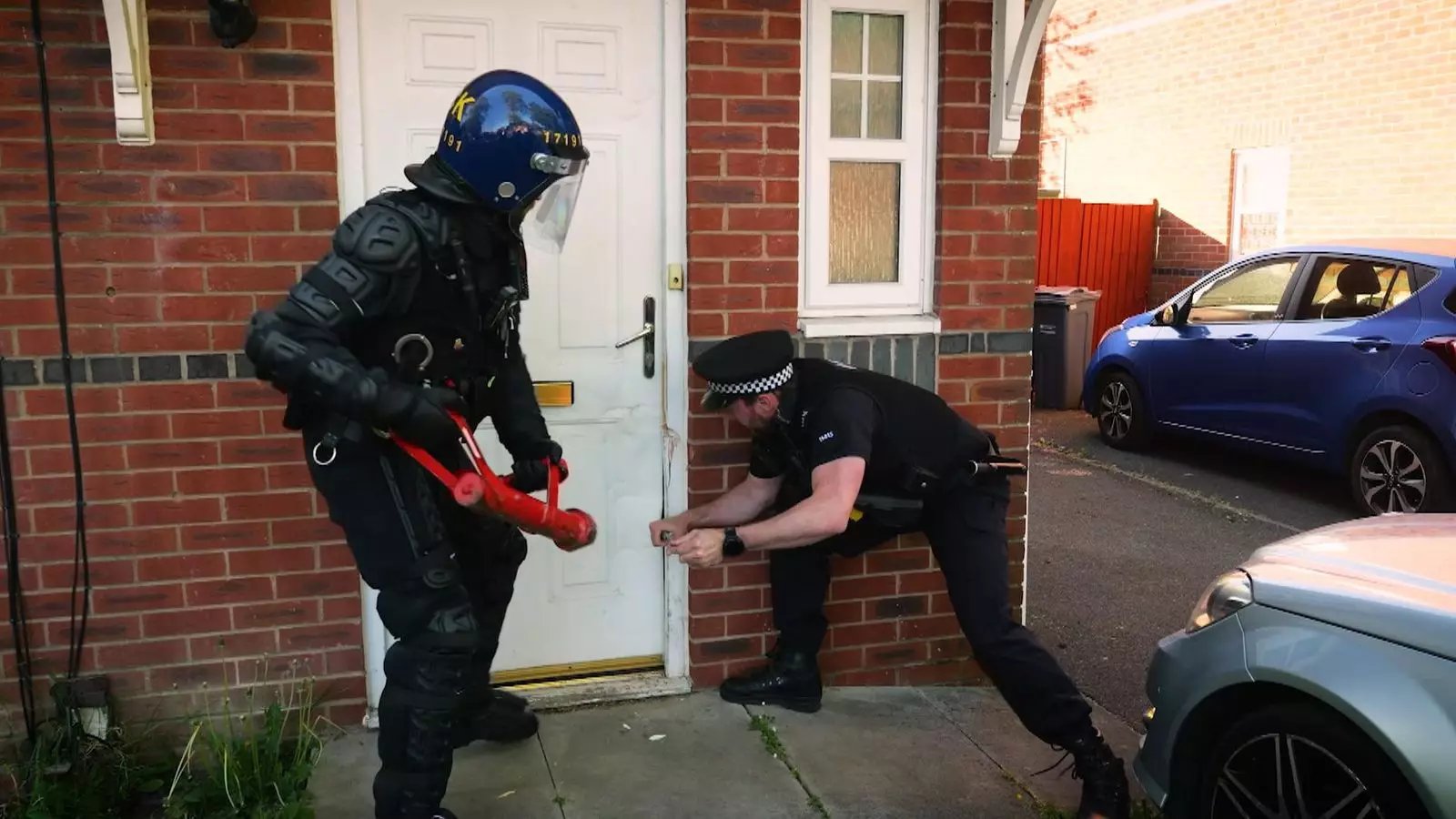The rise of organized crime in the realm of illegal cannabis farming is alarming. As criminal gangs increasingly infiltrate suburban landscapes, the consequences extend far beyond mere law enforcement concerns. These operations are characterized by their dangerous methodologies, not only threatening the safety of communities but also highlighting significant legal and ethical failures surrounding cannabis legislation. The underlying issues persistently challenge the notion that cannabis is benign; the narrative surrounding its legalization needs to drastically shift to encompass the real implications of current illegal trade practices.
Innocent Lives at Risk
Innocent neighbors find themselves in peril as these illicit operations become more prevalent. An insightful investigation by Greater Manchester Police revealed that over 400 cannabis farms were discovered within a short time frame. The prevalence of these operations puts individuals in danger — not only from the gangs themselves, which may resort to violent tactics to protect their territory but also from the unsafe practices employed in running these illegal operations. For instance, the reckless bypassing of electricity meters, primarily intended to avoid hefty bills, poses a severe risk of electrical fires. The concern for residents living nearby becomes chillingly tangible when one considers the explosion tragedy involving a young child, Archie York, resulting from such farming practices. This tragedy reinforces the urgent need for comprehensive approaches to address these issues, recognizing cannabis not just as a recreational substance but also as the catalyst for a dangerously criminal culture.
The Dark Economics of Illegal Cannabis
The financial profitability of cannabis farms is staggering, which inevitably leads to brutal competition between rival gangs. Statements from law enforcement reveal that these groups engage in violent raids, infamously known as “taxing.” The desperation for profit drives a culture of violence, with oral threats morphing into physical confrontations that can result in injury or even death. The term “gardener,” used to describe those carrying out the day-to-day management of these farms, belies a system in which vulnerable individuals become expendable pawns for nefarious operations. It raises significant ethical questions about exploitative labor practices in the drug trade and the target demographic that falls victim to these organizations.
The Issue of Rogue Landlords
Compounding the complexities of the illegal cannabis phenomenon are rogue landlords who unwittingly facilitate these operations. Many property owners lack awareness of what constitutes a red flag in identifying illicit activities, leading to an epidemic of rented properties being turned into hubs for crime. Surveys of landlords reveal an alarming disconnect; their ignorance regarding the signs of illegal cannabis farming can endanger entire communities. This failure to safeguard rental properties not only incurs financial loss from property damage but also exposes neighbors directly to the gang-related violence surrounding these setups.
Moreover, landlords don’t just face financial ramifications; they may also inadvertently become entangled in the web of criminal accountability, reflecting a societal failure to address the systemic issues at play. Regulatory frameworks around rental properties require urgent scrutiny and reform to adequately protect both residents and property owners from involvement in these precarious situations.
Beyond Deflection: The Realities of Legalization
The persistent assertion that cannabis operations are merely a recreational issue requires reevaluation within the broader discourse on legalization. While cannabis reform advocates often cite regulation as a pathway to diminishing crime or violence associated with the drug, the ongoing rise of organized criminal cannabis farms underlines a disconnection between legislative efforts and real-world implications. Proponents of legalization must recognize and address the fact that the criminal circuit continues to thrive in conditions where illicit trade is allowed to flourish. A shift in political and social consciousness is needed to understand that cannabis operations led by organized crime must be dismantled, regardless of legal frameworks.
Thus, as society continues to grapple with the stunning complexities of cannabis legalization, we must take a firm stance against the operational undercurrents of criminality plaguing our neighborhoods. The acknowledgment of violence, vulnerability, and exploitation as pivotal elements of this narrative must take precedence, ensuring that the push for a reformed approach to cannabis addresses the multifaceted risks posed to innocent lives caught in the crossfire of gang rivalry and illegal drug production. The conversation surrounding cannabis must evolve to reflect reality, prioritizing community safety over simplistic arguments for relaxation of drug laws.


Leave a Reply